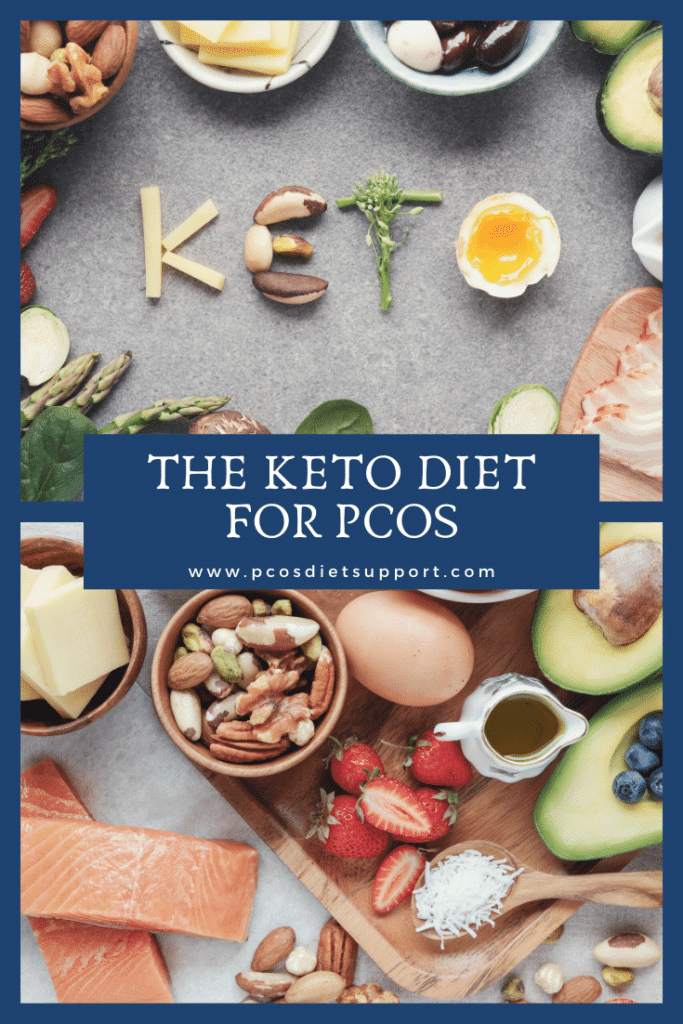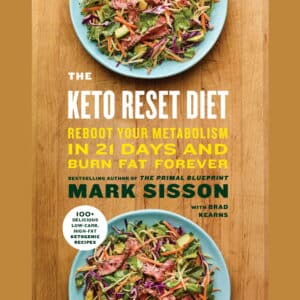Is the Keto Diet Best for Pcos
The ketogenic diet is nothing new. It has been around for a while and comes in many forms: the Atkins Diet or LCHF (Low carb high fat). And recently, a member of my PCOS Master Plan Program emailed me to tell me about the success she was having on a keto diet. My interest was piqued and I hit the books and medical journals looking at if a keto diet is good for PCOS.
The ketogenic diet aims to lower insulin levels and can induce weight loss which is helpful for women with PCOS. It also improves insulin sensitivity, aids weight loss, manages hunger and improves the PCOS hormone profile. However, the keto diet can be very difficult to sustain over the longer term.
The Ketogenic Diet explained:
Basically, a ketogenic diet significantly restricts carbohydrates, while focusing heavily on high fats (healthy fats) and moderate protein. There are a number of things that happen when you do this:
Your need for insulin drops significantly. From a PCOS point of view, this would be helpful as we tend to have high levels of insulin to begin with. High insulin levels cause our ovaries to produce too much testosterone which makes our symptoms worse.
 Also, when we restrict carbohydrates, we cause our body to use fat for fuel, instead of glucose. The burning of fat instead of glucose creates a by-product called ketones, hence the name of the keto diet (1).
Also, when we restrict carbohydrates, we cause our body to use fat for fuel, instead of glucose. The burning of fat instead of glucose creates a by-product called ketones, hence the name of the keto diet (1).
Dr Fung, author of The Complete Guide to Fasting, explains it really well. He explains that our bodies have glucose stores that are easy to access and that our bodies turn to when we're running low on dietary carbohydrate. This is like a refrigerator in our kitchen. It's where foods is easily at hand and easily topped up.
We also have a freezer in the basement where our longer term energy is stored. It is harder to access. This freezer is our fat cells. The problem is, with our high carb lifestyle, the fridge is permanently well stocked and there is no need to access the freezer (or our fat stores).
The ketogenic diet (and intermittent fasting) allows us to empty the fridge and access the freezer much more easily.
Now, there are many proposed benefits of a ketogenic diet.
Benefits of a Ketogenic Diet for PCOS
There are a number of benefits of a keto diet. Here are some of them:
Mant women with PCOS lose weight on the Keto Diet
Losing weight on a keto diet becomes easier and is one of the many reasons that women start a keto diet. You see, if your body is well adapted to burning fat for energy, it can then more readily use your own fat stores for energy instead of all the glucose it would normally use.
Cravings subside on the Keto Diet
 Cravings are often caused by disordered insulin. As you have carbs, your insulin levels shoot up, only to drop rapidly, causing your body to crave more sweet things and carbs. As soon as you satisfy that craving, your insulin levels shoot up again, starting the cycle all over again.
Cravings are often caused by disordered insulin. As you have carbs, your insulin levels shoot up, only to drop rapidly, causing your body to crave more sweet things and carbs. As soon as you satisfy that craving, your insulin levels shoot up again, starting the cycle all over again.
A ketogenic diet helps to stabilise those insulin levels and can really help to manage those cravings.
The Keto Diet can help women with PCOS feel fuller for longer
A ketogenic diet that is higher in good quality fats tends to make you feel fuller for longer. Although researchers aren't clear why a keto diet impacts on satiety, it is well-documented that a ketogenic diet helps with appetite control (2).
The Keto Diet Improves the hormone profile of women with PCOS
One study conducted with women with PCOS who followed a LCHF diet for 6 months found significantly reduced testosterone, fasting insulin and improved LH/ FSH ratio. The women also lost about 12% of their body weight over the 6 months (3).

The keto diet can improve cardiovascular health in women with PCOS
Research shows that a keto diet is also good for the heart in that it helps to lower cholesterol and boost levels of high density lipoprotein (the good cholesterol). This promotes heart health. Bear in mind that women with PCOS are at risk of cardiovascular disease.
Acne
 A ketogenic diet also seems to help with acne. High levels of insulin tend to lower the levels of IGF-1 binding protein in the body. Women with PCOS tend to have lower levels of IGF-1 BP already and this leaves higher levels of IGF-1 in the body, causing our acne to get worse.
A ketogenic diet also seems to help with acne. High levels of insulin tend to lower the levels of IGF-1 binding protein in the body. Women with PCOS tend to have lower levels of IGF-1 BP already and this leaves higher levels of IGF-1 in the body, causing our acne to get worse.
If we can lower insulin levels, we'll boost IGF-1 binding protein which will lower IGF-1 levels and improve acne (4).
Okay, so we have spoken a lot about the benefits of a keto diet for PCOS. Are there any negatives?
Cons of a Ketogenic Diet for Women with PCOS
The diet can be hard to follow
Following a ketogenic diet can be very restrictive and difficult to follow. You are eliminating a high percentage of carbohydrates and that can be difficult for a lot of people. So, it not necessarily sustainable.
Keto Flu
"Keto flu" is something that many people experience in the fist week or two of eliminating the majority of their carbohydrates. Headaches, nausea, general achiness are common but the feelings soon pass as your body becomes more proficient in burning fats for fuel, instead of glucose.
Constipation
Constipation is common when following a ketogenic diet. Your dietary fibre in take tends to drop as you avoid certain carbs. This can be avoided by eating lots of leafy greens and non-starchy vegetables.
Hypothyroidism
 If you have hypothyroidism or Hashimotos (which is fairly common in women with PCOS) you may want to rethink a ketogenic diet. You see, insulin is need for proper thyroid function. So, drastically lowering your insulin levels when your thyroid is already struggling may not be the best idea. You are probably better off on a moderate carb diet as opposed to a low carb diet (5).
If you have hypothyroidism or Hashimotos (which is fairly common in women with PCOS) you may want to rethink a ketogenic diet. You see, insulin is need for proper thyroid function. So, drastically lowering your insulin levels when your thyroid is already struggling may not be the best idea. You are probably better off on a moderate carb diet as opposed to a low carb diet (5).
My Experience of a Ketogenic Diet
As you know, as I have PCOS myself, I am always looking at ways of managing my own PCOS and telling you about those things that have good scientific evidence behind them.
So, for the past 2 weeks, I have been following a ketogenic diet myself. I know 2 weeks is not a particularly long time but I thought that I would share my experience with you anyway.
Before going keto, my diet was pretty good. I generally follow all of the PCOS diet principles you will find on this site: low GL whole foods, no dairy and no gluten. In September I also did a Whole 30. So, my starting point was not a Standard American Diet.
Having said that, I did go on holiday the week before I started keto and indulged in things I normally wouldn't have – ice creams, eating out and having more gluten than normal. Nothing crazy but not as "clean" as I normally eat.
So, with that in mind, I did have quite a bad headache for the first three days. I was probably a bit grumpy and even a bit tired. After that though, my energy levels have picked up and I feel more alert and able to focus.
I have also noticed that I hardly had any PMS this cycle (my husband knows exactly where I am in my cycle based on my mood 🙂 ). I am also pleased to say that I have lost about 1.5kg in the last two weeks.
Overall, I am happy with how I feel and my PCOS symptoms. I will probably continue my keto experiment until Christmas and will then re-evaluate how I feel then.
Do you have to follow a keto diet for PCOS?
I know this is something that I will get asked and I want to be clear on this. It is NOT necessary to follow a ketogenic diet to manage your PCOS effectively. I have always followed the guidelines that I speak about so often on this site and my PCOS is well-controlled.
Also, many thousands of women come across this site on a daily basis and a huge percentage of them have had great success with following the same guidelines:
-
Eat foods with a low glycemic load
-
Eliminate gluten
-
Avoid dairy
Combine this with supplements and exercise and you are setting a good foundation for your PCOS.
But, if you have plateaued in your weight loss efforts or you feel like your PCOS is particularly out of control at the moment, you may want to consider a period of going keto before adding in a few more carbs. I always recommend limiting carbs to about 100g per day whereas a ketogenic diet varies between 20-50g per day.
Getting Started on a Keto Diet for PCOS
If you are eager to give a keto diet a try, I would highly recommend reading the book "The Keto Reset Diet" by Mark Sisson. The book gives a lot of background into why ketosis can be helpful but what I like most about it is that Mark Sisson's focus is not just on macronutrients (carbohydrates, fat, protein) but rather on good nutrient-dense foods.
 He also recommends a graded transition into ketosis, following a 21 day keto reset. This 21 day plan focuses on good nutrition with lower carbs but not necessarily full ketosis. Once you have adjusted to the lower carbs, he then suggests you further restrict carbs to go into ketosis.
He also recommends a graded transition into ketosis, following a 21 day keto reset. This 21 day plan focuses on good nutrition with lower carbs but not necessarily full ketosis. Once you have adjusted to the lower carbs, he then suggests you further restrict carbs to go into ketosis.
This seems like a sensible approach to me.
He also has meal plans and recipes included in the book. I have been trying a lot of these and have really enjoyed them. Just a word of caution: Mark Sisson does include dairy in some of his recipes. I just leave out the dairy or if it a very dairy-heavy meal, I swap it out for something else.
So, to sum it up:
A keto diet for PCOS shows promise and seems to be helpful. It can be difficult to follow and if you are considering trying a keto diet, I would go slowly, be gentle with yourself and see it as a journey. Do as much reading as you can on it and lower your carb intake gradually.
Remember, although it may be helpful, it is not the only way to manage your PCOS. PCOS is for life and whatever way of eating we choose to follow, it needs to be sustainable and become a way of life.
Have you tried a keto diet for PCOS? If you have, I'd love to hear from you! Leave me a comment and let me know if you have found it helpful for your PCOS.
(This post contains affiliate links)
Is the Keto Diet Best for Pcos
Source: https://www.pcosdietsupport.com/diet-tips/keto-diet-for-pcos/